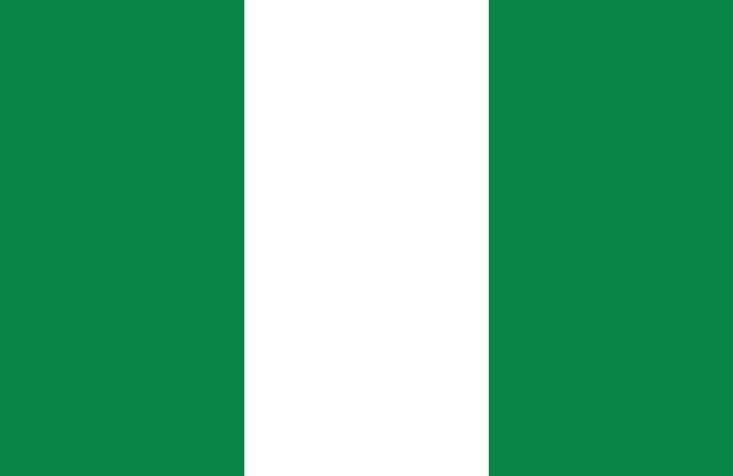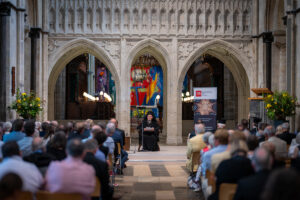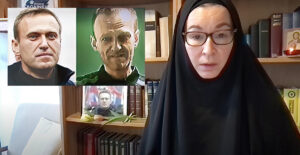The murder of Christians in Nigeria has become grimly routine, as it takes place now practically a daily basis. This crisis continues to grow in the face of continued inaction from the Nigerian government, as is noted and discussed below, and indifference from the world community.
For previous coverage of the persecution of Christians in Nigeria from ChristianPersecution.com, see here.
“Area in Nigeria Attacked Unimpeded for One Week,” Morning Star News, July 18, 2021:
JOS, Nigeria (Morning Star News) – Fulani herdsmen attacked villages in southern Kaduna state, Nigeria unimpeded from July 8 to Wednesday (July 14), killing 33 Christians, sources said.
“My mother’s village, Warkan, was attacked by Fulani herdsmen – several houses were burned, and I lost my uncle, his wife and children, eight family members in one house,” Manasseh Adamu said of a July 11 attack in Zangon Kataf County, in a text message to Morning Star News. “My heart bleeds because of the attacks on Christians here in southern Kaduna state.”
He described the herdsmen as jihadists who targeted Christian villages.
“Many have died and others wounded; houses burned, churches burned, goods looted,” Adamu said.
Among the villages attacked from July 8 to Wednesday (July 14) in Zangon Kataf County was predominantly Christian Matyei, where area residents identified Fulani herdsmen as the assailants who invaded on Wednesday, killing eight Christians and burning 156 homes, according to Luka Binniyat, spokesman of Southern Kaduna People’s Union (SOKAPU).
“The Catholic church in Matyei village and its pastorium were burnt,” Binniyat said in a statement. “The catechist, simply known as catechist Yau, and an infant, were killed in the attack.”
The armed Fulani herdsmen then went 500 meters to predominantly Christian Abuyab village and burned down the Evangelical Church Winning All (ECWA) building. Among 12 homes burned was that of a former West Africa Armed Forces field commander, retired Maj. Gen. Shekari Billyok, a Christian, Binniyat said.
As the herdsmen left, they destroyed a bridge linking Matyei village with Zangon Kataf town and other Christian communities, he added.
The previous night, Tuesday (July 13), the same armed herdsmen attacked predominantly Christian Makarau and Kachechere villages, killing 10 Christians and burning 12 houses. They set ablaze the ECWA and Anglican church buildings in those communities, Binniyat said.
Herdsmen stormed Magamiya village on July 12 and started shooting, he said.
“The house of the Christian community leader in the area, Sir Dominic Yahaya, was attacked,” Binniyat said. “Several blocks of flats and rooms that make up the family compound of five households were looted of valuables and foodstuffs which were carted into four waiting Hilux vans.”
Two people were killed in the attack, including Mathew Pama, 62, as herdsmen looted and set houses ablaze, he said.
“After putting in about two hours of unchallenged murder, looting and arson, the armed herdsmen burned down St. Pious [sic] Catholic Church in the village,” Binniyat said.
Fulani herdsmen on July 11 attacked predominantly Christian Warkan village, about seven kilometers (four miles) east of Matyei village, killing the eight Christian family members, Binniyat confirmed. They burned 11 homes and looted the village, depriving some people of their animals.
On July 9 in Makarau village, herdsmen ambushed and killed Timothy Ayok, a 35-year-old Christian, as he returned from his farm that afternoon.
The previous day in Kibori, Fulani herdsmen attacked the village about one kilometer from Zangon Kataf town and killed four members of a family, including 65-year-old widow Esther Patrick and her 6-year-old grandchild, Yerima Godfrey, Binniyat said.
“Therefore, in the past six days, at least 33 Christians in the Zangon Kataf area were massacred, four churches and 215 homes burned by assailants always identified as armed herdsmen in a genocidal campaign that has been become very intensive since 2016,” he said. “We condemn this wicked act and the complicit silence and inaction of government for failing to take steps to bring the Fulani perpetrators and their leaders to justice.”
Since 2019, Fulani herdsmen have taken over 108 southern Kaduna communities, he said.
Year of Destruction
Binniyat said that more than 100 Christians in Zangon Kataf County have died at the hands of Fulani herdsmen in the past year, with Nigeria’s government making no efforts to stop them.Burning 24 predominantly Christian villages since July 2020, the herdsmen grazed their cattle on hundreds of hectares of farmlands, destroying crops, with authorities failing to call a single Fulani leader in for questioning, Binniyat said….
In Open Doors’ 2021 World Watch List of the countries where it is most difficult to be a Christian, Nigeria broke into the top 10 for the first time, jumping to No. 9 from No. 12 the previous year.
Numbering in the millions across Nigeria and the Sahel, predominantly Muslim Fulani comprise hundreds of clans of many different lineages who do not hold extremist views, but some Fulani do adhere to radical Islamist ideology, the United Kingdom’s All-Party Parliamentary Group for International Freedom or Belief (APPG) noted in a recent report.
“They adopt a comparable strategy to Boko Haram and ISWAP [Islamic State West Africa Province] and demonstrate a clear intent to target Christians and potent symbols of Christian identity,” the APPG report states.
Christian leaders in Nigeria have said they believe herdsmen attacks on Christian communities in Nigeria’s Middle Belt are inspired by their desire to forcefully take over Christians’ lands and impose Islam as desertification has made it difficult for them to sustain their herds.
The APPG report noted that tribal loyalties cannot be overlooked.
“In 2015, Muhammadu Buhari, a Fulani, was elected president of Nigeria,” the group reported. “He has done virtually nothing to address the behavior of his fellow tribesmen in the Middle Belt and in the south of the country.”
The U.S. State Department on Dec. 7 added Nigeria to its list of Countries of Particular Concern for engaging in or tolerating “systematic, ongoing, egregious violations of religious freedom.” Nigeria joined Burma, China, Eritrea, Iran, North Korea, Pakistan, Saudi Arabia, Tajikistan and Turkmenistan on the list.
In a more recent category of non-state actors, the State Department also designated ISWAP, Boko Haram, Al-Shabaab, Al-Qaeda, Hayat Tahrir al-Sham, the Houthis, ISIS, ISIS-Greater Sahara, Jamaat Nasr al-Islam wal Muslimin, and the Taliban as “Entities of Particular Concern.”
On Dec. 10 the prosecutor of the International Criminal Court, Fatou Bensouda, issued a statement calling for investigation into crimes against humanity in Nigeria.







